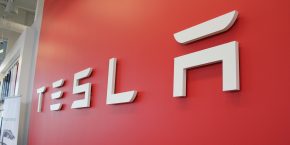
For four years in a row now, Tesla has been trying to enter Connecticut, one of the few states that still prevent Tesla from selling its vehicles directly to consumers.
The automaker tried again during the most recent legislative session, but the company was again shut down as the politicians are still bending to the will of the auto dealers.
The Connecticut Automotive Retailers Association (CARA) has been lobbying to retain its monopoly on vehicle sales in the state by using old laws that prohibit automakers from selling vehicles to consumers without going through franchise dealerships. Those laws exist to protect dealerships against potential unfair competition against their own automakers, but they are trying to apply them to automakers who have never had franchise dealerships, like Tesla.
They have been leading several efforts to block Tesla’s attempt to obtain an exemption to sell its vehicles all the way back in 2014.
The first year Tesla tried to get access to the market, CARA published a website called ‘TeslaCrash.com’ when the bill was first announced. The website was using questionable methods to try to discredit Tesla, including featuring pictures and articles about benign accidents, hence the name of the domain.

They stepped up their game over the years – resulting in an even more active campaign in 2017 that included sending ‘secret shoppers’ to try to shut down Tesla’s gallery in Greenwich.
During the last legislative push, Tesla even promised to open 10 stores in Connecticut by the end of next year if they were made allowed to sell in the state.
A company executive even warned that ‘thousands’ of Model 3 reservations holders will go outside of Connecticut to buy if direct sales weren’t legal by the end of the year.
The effort failed, but Tesla launched a new one for the fourth year in a row during this year’s legislative session.
At the time, Tesla’s Will Nicholas, policy manager, told Hartford Courant today that buyers have access to Tesla’s vehicles in states all around Connecticut and the state could lose as much as $5 million in taxes if they let those buyers go outside the state to make their purchase, like they do now.
CARA is again opposing the effort claiming that they will lose jobs and that it will lead to Chinese and Indian companies selling their cars in the state. They didn’t offer any evidence that it would happen or an explanation why they wouldn’t be able to compete with those companies or Tesla in a free market
The latest version of the bill got approval in committees, but it was never brought to the floor for a vote as politicians wanted CARA to approve the bill through negotiations with Tesla, which never happened.
The state legislation ended this week – leaving Tesla and its customers in the state without a solution again.
A Tesla spokesperson sent Electrek the following statement about the situation:
“One day, maybe the Connecticut auto dealers will finally do something pro-consumer. Until then, we will continue to fight for what’s right.”
It was one of several different efforts to pass new legislation to allow direct sales of vehicles this year in the last few states that still ban Tesla’s business model.
Unlike in Connecticut, it was a success for Tesla in Utah, but states like Texas and Michigan are also still siding with the auto dealer lobby.
Electrek’s Take
You know how we feel about this issue. It’s quite ridiculous. These laws to block Tesla exist to protect dealerships against potential unfair competition against their own automakers.
Now instead of using them as intended, they are trying to apply them to automakers who have never had franchise dealerships, like Tesla, and therefore represent fair competition.
If you think that Tesla can unfairly compete with you by selling their cars directly to consumers, then you are admitting that the service you are offering to consumers doesn’t add enough value.
At its core, it’s a free market issue where a well-intended regulation is used by a group of people to maintain an artificial monopoly.
Those issues should be fixed quite easily, but the auto dealer lobby has a strong influence on politicians in many states, which is often prevailing over common sense.
At the end, it results in slowing down the rollout of electric vehicles, which we think is the greater issue.
FTC: We use income earning auto affiliate links. More.



Comments